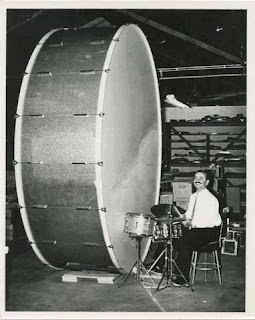As a bassist I view part of my job to be one half of the rhythm section - inherent in this view is timing. In a live environment timing can be the difference between a good band and an awful band. Lack of timing and precision by a band bespeaks a lack of maturity or awareness of the big picture. I have walked out on bands who are unable to get the timing together and I have been so impressed by other bands' precise tight timing that I not only have gone to more of their shows but I have encouraged other people to go check them out as well.
For me there are a couple of levels of timing that I attend to. The first is personal timing which involves the use of a metronome. With all the free apps available there really isn't an excuse not to have and use one. I use Pro Metronome by EUM and while the free version does not do everything that the paid version does it handles my metronome needs just perfectly.
Playing with a metronome is an eye (and ear) opening experience. I always thought I had great timing until I started playing with one and realized I really had gotten lazy. I now use a metronome every chance I get when practicing privately. I play all my scales and arpeggios at 70 BPM which forces me to slow down and really listen to what I am doing with each note. For me this is a critical component to becoming a better musician.
The second level of timing that I take into consideration is playing to a click when practicing our set list. I am very fortunate to be part of a band of like-minded musicians who agree on the approach to practicing and rehearsing our music. Our drummer handles the recording for our band and is always happy to provide me with tracks without bass and with a click for me to practice to. This helps me to identify areas of songs where I may subconsciously drag or rush which in turn helps me deliver a better rehearsal experience for the other members of the band who are depending on me.
The third level of timing that I take into consideration is how I fit in with the rest of the band. First and foremost is the drummer because he is, after all, the timekeeper. He and I need to be lockstep in what we do. This does not mean we do the same thing but that we do our thing in a manner that fits together, makes sense not only to us but the rest of the band, and that our reference point is the same and not subjective to what we are feeling in the moment. Our guitarist is not only an amazing timekeeper but he has an objective awareness of what is going on in the group setting. For us to make adjustments mid song is not a catastrophe in the making - everyone is already paying attention, knows what should be, and makes it happen. The metronome makes that possible.
At the moment the drummer uses EIM's to have a click and the rest of us follow him but ultimately the goal is to have everyone with EIM's and a click in all of our heads. Some might argue that this makes music sterile but for us, with odd time signatures, time and rhythm changes, and stops and starts the click really makes sense. While we seek perfection in our craft we fall far from it for we are human after all. The metronome just keeps us all on the same page.


No comments:
Post a Comment